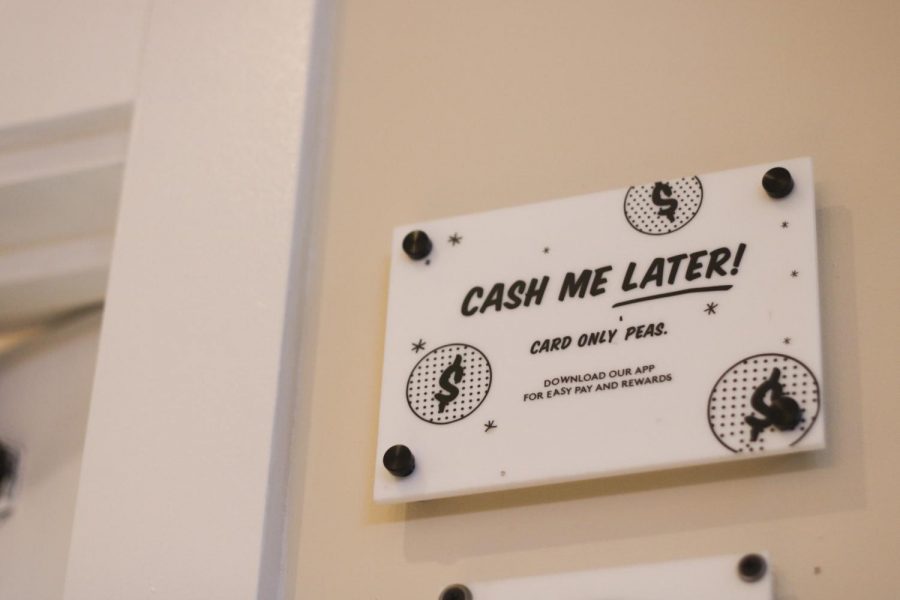New York City lawmakers passed legislation on Thursday, Jan. 23 that requires all New York City businesses to accept cash payments. The City Council approved the ban on the grounds that it is discriminatory for a shop or restaurant to refuse cash or charge more for cash purchases. This means that restaurants like Dos Toros Taqueria and by CHLOE., who say ditching cash has increased efficiency at the register and management, will once again train their employees to count change.
Since the bill was passed so recently and won’t go into effect until nine months after Mayor Bill de Blasio signs it into law, many NYU students haven’t heard of the change. While most said they would continue to pay with cards rather than switch back to cash, the debate over this bill raised many concerns for them.
“There are advantages [to refusing cash], but you have to think about the bigger picture, especially in a place like New York,” Global Public Health first-year Tracey Ouakoube said. “I didn’t know that existed, and I feel like it should never have been a thing to begin with because New York is a very diverse place. Someone who’s in a lower socioeconomic status, they don’t have — or say, their immigration status — they don’t have [the money], or they’re afraid to open up a bank account.”
New York’s Department of Consumer Affairs said in 2019 that one in nine households don’t have a bank account, according to the New York Times. The Times also reported that cashless businesses argue that their methods reduce the risk of robbery and mismanagement, but Tisch sophomore Savidu Geevaratne thought the advantages come at too great a cost.
“‘I think there’s other solutions to [safety concerns] versus disenfranchisement. I don’t think there are other solutions to that,” he said.
Furthermore, Councilman Ritchie Torres, the lead supporter of the bill, told the New York Times, “We are reining in the excesses of the digital economy.” But who’s to say a cashless economy is excessive rather than progressive?
“In China, people don’t use cash anymore. We use WeChat or Alipay,” CAS sophomore Jiahao Li, who is an international student from China said. “I think there are both pros and cons for the new [policy] … They might have more customers if they only accept credit cards, but if they accept cash it would be less efficient.”
As reported by the New York Times, similar bans on cashless establishments have been passed in Philadelphia, San Francisco and New Jersey. The state of Massachusetts has been ahead of the curve with a cashless ban since 1978. Other cities aren’t as quick to come to a decision. Chicago has been considering similar legislation since 2017.
“I feel like the laws should expand because New York is not the only place where people don’t have access or are afraid to open a bank account and don’t have access to easy cash or easy money,” Ouakoube added.
As for NYU students, while the freedom to pay in cash might not change habits, it will change their outlook on the issue.
“It’s not gonna affect [how I pay], but now I’m gonna ask when I go into restaurants, ‘Do you accept cash?’ Like, do a little screening, to see, now that I know certain restaurants are doing this,” Ouakoube said.
So next time you’re craving a Dos Toros burrito, you can reach for your Apple Wallet — or simply your wallet.
A version of this article appears in the Monday, Feb. 3, 2019 print edition. Email Sabrina Choudhary at [email protected].






















































































































































